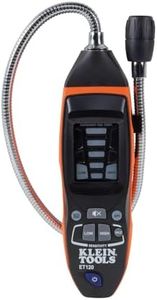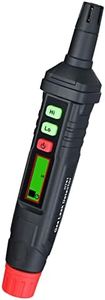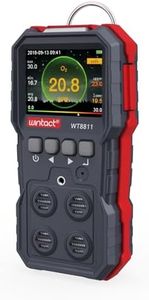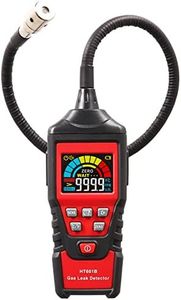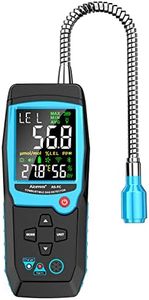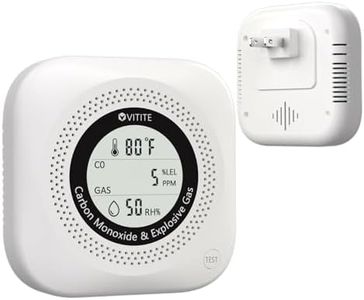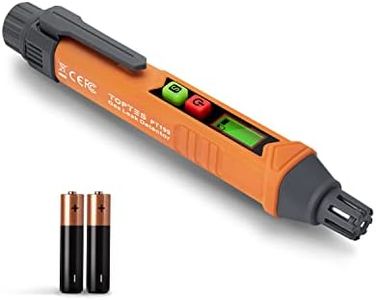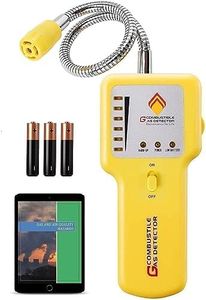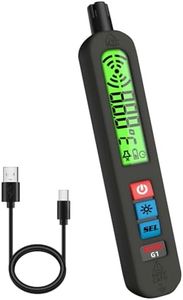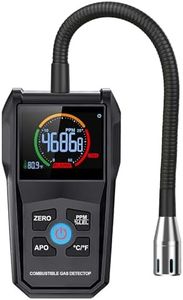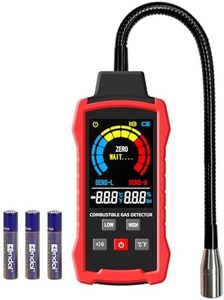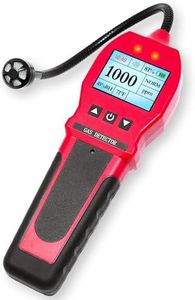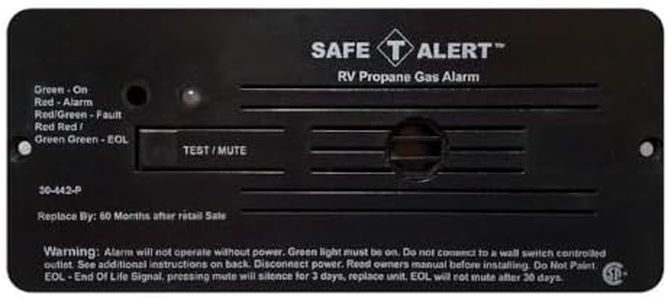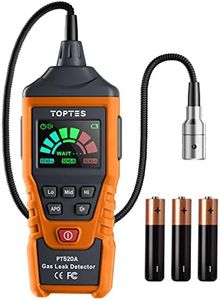We Use CookiesWe use cookies to enhance the security, performance,
functionality and for analytical and promotional activities. By continuing to browse this site you
are agreeing to our privacy policy
10 Best Propane Gas Detectors
From leading brands and best sellers available on the web.By clicking on a link to a third party's website, log data is shared with that third party.
Buying Guide for the Best Propane Gas Detectors
Choosing a propane gas detector is important for maintaining safety in your home, RV, or workplace. The right detector helps you identify gas leaks early, preventing potentially harmful situations. To make an informed decision, you should look at several key features and make sure the product matches where and how you'll be using it. Understanding each of these features will help you choose a detector that offers the right balance of sensitivity, ease of use, and reliability for your needs.Sensor TypeThe sensor is the heart of the gas detector, responsible for detecting propane in the air. Common types include semiconductor, catalytic bead, and infrared sensors. Semiconductor sensors are common in budget-friendly detectors but may be less accurate, while catalytic and infrared sensors are typically more reliable and durable. If you need quick and consistent detection, especially in a busy or industrial environment, you might prefer catalytic or infrared sensors. For ordinary home use, a quality semiconductor sensor usually suffices.
Detection Range (Sensitivity)Detection range refers to the concentration of propane the detector can sense, typically measured in parts per million (ppm). A lower detection threshold (such as 0-100 ppm) means the detector is more sensitive and can pick up smaller leaks, while a higher range (such as 0-1000 ppm) might be more suitable for industrial spaces where concentrations could be higher. For homes, a detector with a lower detection threshold is ideal as it can alert you early before gas levels get dangerous.
Alarm Type and VolumeThe alarm mechanism alerts you to the presence of propane. Some detectors use loud audible alarms, while others also have flashing lights or digital displays. The volume of the alarm is important—look for a unit that is loud enough to be heard from a distance, especially in larger homes or RVs. If you want maximum peace of mind, consider a detector with both audible and visual alerts, and ensure the alarm is at least 85 decibels so it can wake you from sleep.
Power SourcePropane gas detectors can be powered by batteries, AC outlet, or direct wiring to your home's electrical system. Battery-powered units are portable and ideal for RVs or temporary use, but require regular battery replacement or charging. Hardwired or plug-in models offer continuous power and are suitable for permanent installation in homes. Consider your installation location and mobility needs to choose the appropriate power option.
Installation MethodThe way a detector is installed affects both convenience and effectiveness. Some models are designed for wall mounting near the floor (since propane is heavier than air), while others can be placed on countertops or plugged into outlets. The best method depends on your space—choose a detector whose installation fits where you plan to use it, and always follow manufacturer guidelines to ensure proper positioning for accurate detection.
Maintenance and Testing FeaturesKeeping your detector working properly is crucial for safety. Some units feature test buttons for regular checks, as well as indicators for low battery or sensor faults. Easier maintenance means better long-term protection. If you want hassle-free operation, look for a detector that makes it easy to test and comes with clear indicators when something needs attention.
Certifications and ComplianceCertifications like UL or CSA indicate that the detector meets recognized safety and performance standards. These approvals are important because they ensure the unit has been independently tested for reliability. Always choose detectors that list such certifications for your peace of mind—especially if you want guaranteed effectiveness in case of a leak.
